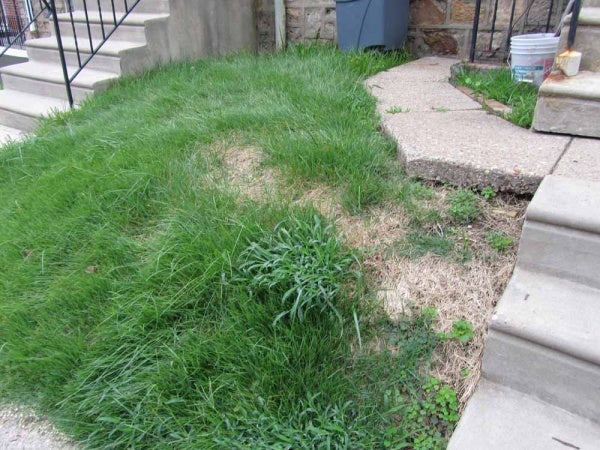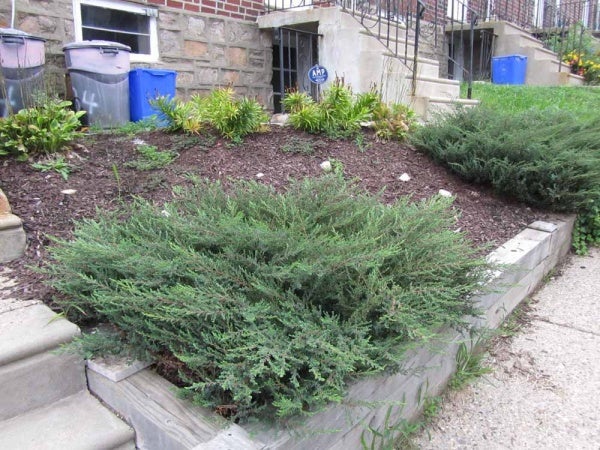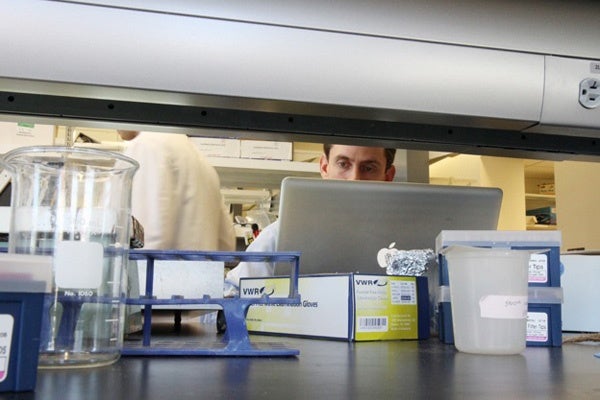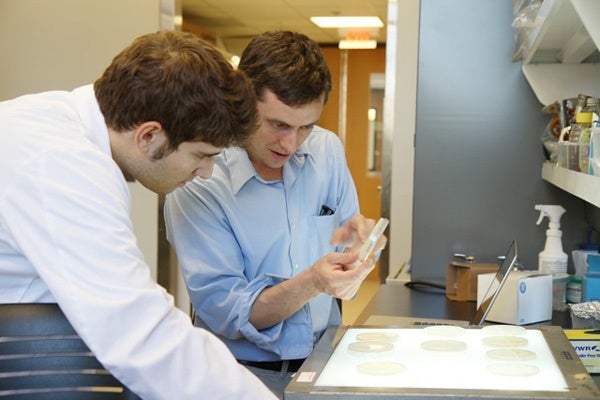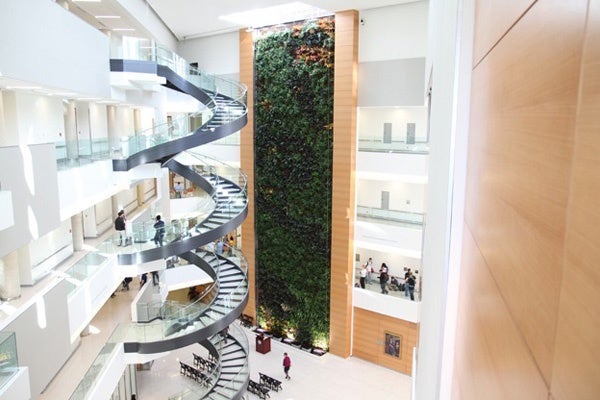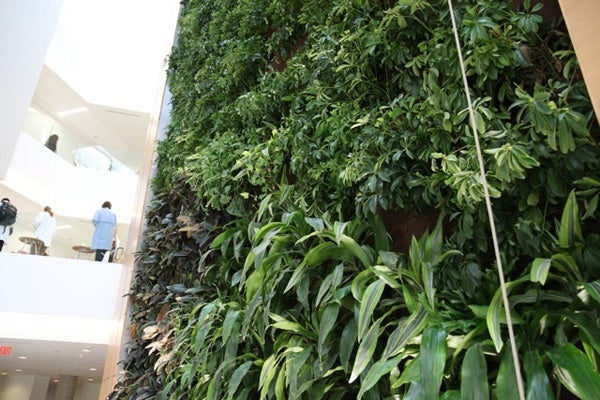With wall of plants, Drexel in ivy league of its own
A bio-filtration laboratory in the new science building on Drexel University’s West Philadelphia campus is masquerading as an aesthetically pleasing wall of plants in the lobby.
When visitors walk into the lobby of the new science building on Drexel University’s West Philadelphia campus, their eyes travel up. They meander along a wall of plants, including Algerian ivy, ficus and hibiscus, which stretches up five stories.
Biology professor Jacob Russell explained that the tangle of vegetation grows hydroponically—without soil—between two layers of a material with the texture of a Brillo pad. The root systems of the plants remove indoor pollutants, acting as a giant air filter.
“Air is drawn through the wall, and passing through the wall, the air comes in contact with water.” Russell said. “That air has chemicals in it, so when those chemical hit the water, they are immersing the roots of the plants.”
Research shows bacteria and fungi that live on plant roots eat those chemicals—such as benzene and formaldehyde—and remove them from the air. Drexel faculty and students will study how well they will do it in Drexel’s new building, and which micro-organisms are doing it best.
In his lab upstairs, Russell has sprinkled plant root particles in petri dishes filled with a benzenelike compound. He is looking for micro-organisms that proliferate, which means they are good at breaking down benzene.
“We can grow that bacterium or fungus up in culture, and basically bathe the roots of other plant species in liquid that contains that beneficial bacterium,” Russell said, to boost the filtration capabilities of the wall.
Back downstairs, Anna Jaworski, a graduate student in environmental science, said she appreciates the wall of plants for aesthetic reasons.
“It’s really relaxing and nice to have in the building,” Jaworski said. “I love being outside, so it kind of makes it easier to be inside all day.”
Drexel said it is the largest living bio-filter in North America.
WHYY is your source for fact-based, in-depth journalism and information. As a nonprofit organization, we rely on financial support from readers like you. Please give today.



